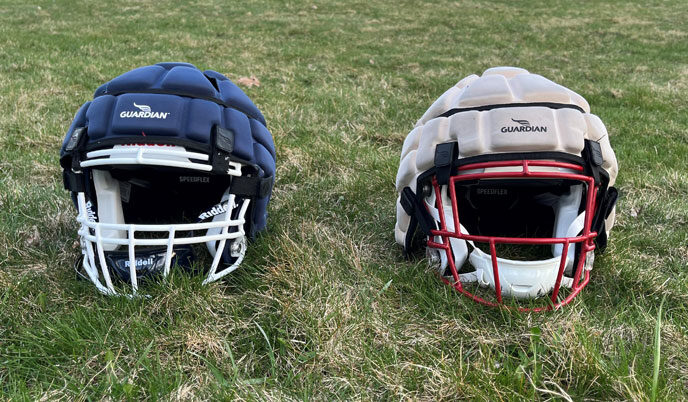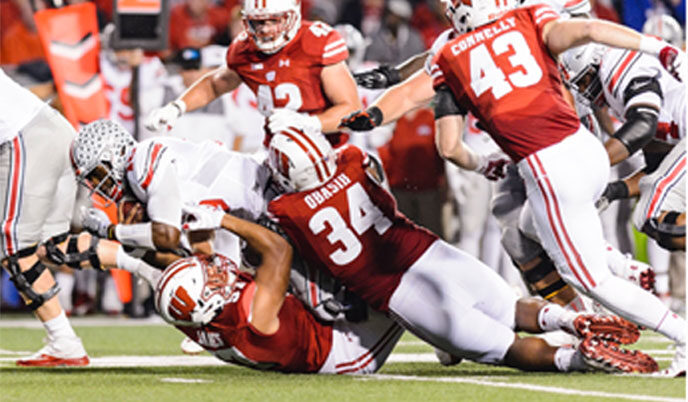
Football helmet covers do not reduce concussions for high school players
A study of 2,610 Wisconsin high school football players found that wearing soft-shell helmet covers, marketed as Guardian Cap helmet devices, during practice had no effect on the rates of sports-related concussions.

UW teams up with NFL on research designed to reduce head injuries in athletes
Researchers at the University of Wisconsin School of Medicine and Public Health are partnering with the National Football League (NFL) to study how on-field head impacts can inform injury reduction efforts at the professional and collegiate levels.

UW researchers to study risk factors for injury in high school runners
Researchers from the University of Wisconsin School of Medicine and Public Health are teaming up with more than 20 high schools across Wisconsin this fall to study how certain risk factors contribute to running-related injuries in high school cross country runners.

NFL awards UW researchers $4 million to lead study on hamstring injuries
A team of researchers led by the University of Wisconsin School of Medicine and Public Health was awarded a four-year, $4 million grant by the National Football League to study the prevention and treatment of hamstring injuries for elite football players. Hamstring injuries are the most common injuries suffered by NFL players, but are also common among recreational, collegiate and high school players.

Study: Wisconsin rule limiting full-contact practice in high school football cuts concussion rate by more than half
The rate of sport-related concussions during high school football practice in Wisconsin decreased by 57 percent following a rule change limiting the amount and duration of full-contact activities during practice, according to a new study by researchers at the University of Wisconsin School of Medicine and Public Health.

‘Protective’ headgear does not prevent sport-related concussions in soccer players, UW study shows
The use of protective headgear among high school soccer players does not result in fewer or less severe sport-related concussions compared to players who wear no headgear at all, according to a new study by researchers at the University of Wisconsin School of Medicine and Public Health.

Limited access to athletic trainers in high schools leads to unreported, mismanaged sports concussions
Student athletes attending high schools with limited access to athletic trainers are far less likely to have a sport-related concussion identified, assessed and managed properly, compared to schools with athletic trainers available consistently during both practice and competition.

Sport specialization may lead to feeling more stressed, less rested
An abstract of new research being presented at the American Academy of Pediatrics 2017 National Conference & Exhibition found sport specialization was associated with significantly worse mood, stress, fatigue, soreness, and sleep quality among female youth soccer players, even after controlling for factors such as age and hours spent training.

Study shows sports specialization may lead to more lower extremity injuries
High school athletes who specialized in a single sport experienced more lower-extremity injuries than athletes who participated in a variety of sports throughout the year, according to a new study presented yesterday at the annual meeting of the American Orthopaedic Society for Sports Medicine.